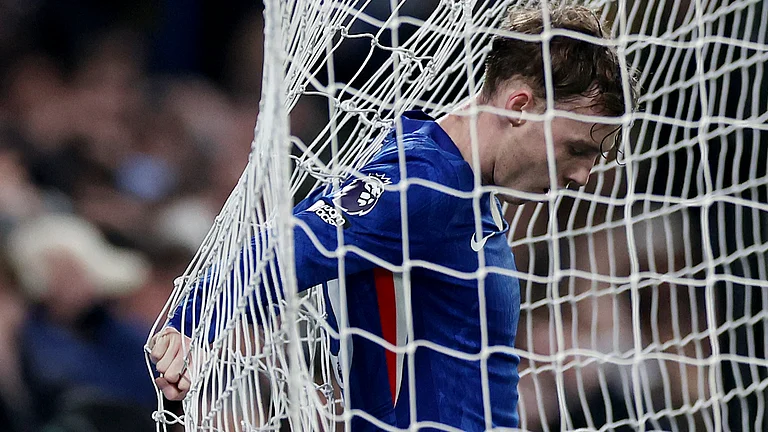The young bearded former counsellor quit the security of his job and along with wife Jasmine sunk his savings into establishing Nishtha. Two other friends 'Warrior' and 'Kaka' helped him start the Centre which celebrated its first anniversary on December 4 this year. Nishtha was begun in a rented accommodation with just Rs 1.2 lakh of which Rs 5,000 went towards rent; kitchenware, bedding, furnishings and stationery cost another Rs 20,000 and the rest went into a bank account as seed money.
Nishtha's resident staff includes Nihar and his wife Jasmine as therapists, and Dr B.K. Ray as visiting physician. Nishtha is not a freebie - paying patients subsidise non-paying ones. In the first batch two patients were treated free while three others paid. The theory is that those who can afford it pay for the treatment.
Nihar does not consider addiction a disease he says that the basis of his therapy is the assumption that addicts who come to him for help have major personality defects. This is the cause of their obsession, says Jasmine. Our job is to identify the failing and remove the obsession by addressing the cause. Whatever its basis, so far the experiment has worked. On the very first day one patient took admission, within 15 days there were four more. Nihar insists on a minimum six month deaddiction therapy.
His results have been impressive. Of the 10 patients who were treated at the Centre, seven have remained clean so far. This may not sound like much of a success story but in the grim battle against addiction, even a year-long clean stint is a positive sign. The inmates live in pleasant airy rooms and are treated like members of the family. We never lock anything, for the basis of this relationship is trust, maintains Nihar.
The centre has a puja room for prayer and meditation, a living room where group sessions are held, a lobby with a television and indoor games, Nihar's study where individual sessions take place, living quarters for the family and a garden. In the first phase of treatment, patients are detoxified through homoeopathic medicine. After medication is over, the therapy begins. Yoga and group discussions are an integral part of the treatment. Patients are first put under observation, then gradually individual and group counselling begins. Recovering addicts are given increasing responsibilities as the cure progresses. Nihar's Centre assures recovering addicts long term support. Deaddiction, says Nihar, is a life-long process. I myself have been clean for 10 years now but my journey has just begun.
Besides, the former addict was the first to start a Narcotics Anonymous (NA) group in the state. A pamphlet thrust casually into his hands on a train journey changed his aimless life. He pulled himself out of his addiction and decided to devote his life to helping those who couldnt help themselves.
He has borrowed much of the NA philosophy and continues to keep his links with addicts recovering through the programme. His experience as a counsellor in various deaddiction centres has come in handy. He continues to operate a network for former addicts beyond his own recovery programmes. NA associates, patients and acquaintances from all over the state stay in touch. Whenever they need me or Nishtha, I'm there, he says.
Nihar shuns publicity - a local cable company wanting to do a report on him got a short shrift as did a politician offering land and money. I'm running an experiment based on my own experience. But my motives arent altruistic. I have a god-given compulsion or mission to do this, he says. Want to know more about that mission. Write to Nihar Ranjan Dash at Plot no 1540, Nishtha, Gandamunda, Bhubaneshwar or call 9860007590.
























